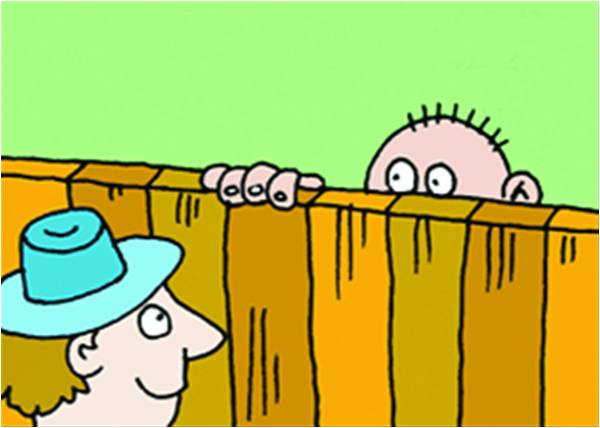
When my erstwhile nemesis/neighbour Mrs. Marzi passed away last year she left behind a husband, a not-awful house, and the lingering smell of Yardley talcum powder popular with anyone who recalls the World Wars in the first person. Since her celestial departure, there has been a steady stream of strangers in my little lane, all trying to buy Casa Marzi for a song. This is exactly the kind of thing that Mrs. Marzi would have hated and loved. Few things gave her as much pleasure as righteously telling other people off, especially if they needed something from her. The strangers began coming the week of her funeral and had she been around, you would have seen Mrs. M’s two bushy eyebrows rise up from behind her boundary wall like a submerged crocodile, waiting for the right moment before jumping out to reveal the fullness of her form and fury.
But she couldn’t, and so they kept coming for months and months. Families, women, men, agents, brokers, tourists, travellers, you name it. Mr. Marzi, bent over double from a lifetime of acquiescing, had become all but catatonic after his wife died. So it fell to his cook/longtime caretaker to negotiate a price for the house without him. The cook refused everyone’s offers, which I never understood since some were quite generous. This was until I saw him move his whole family here from the village and take over the upstairs, a part Mr. Marzi hadn’t seen since the mid-80s. Still, the suitors for the house came. Thrillingly, there was even a “distant nephew” who wanted to claim the property (Mrs Marzi wasn’t particularly maternal – not a life-threatening surprise – and the couple had no children), and for a while there was this crazy Downton Abbey situation of distant heirs doing the rounds until the guy was found to be a fraud and subsequently disappeared. That I know any of this information is testament to the face that living in this colony is like watching Dynasty with fatter, more modestly dressed people.

Eventually someone decoded the multiple intrigues, and the house has now been sold, though I’m told the cook pocketed a quarter of the sale price (fair enough, really. I’m tempted to sue just for having had to live next to the Marzis).
Mr. Marzi was driven off yesterday for the last time and I saw his car leave with that tinge of “meaning” that hits you when you know in your bones you’re never going to see a person again and are surprisingly OK with that fact.
The new neighbours are a family of four: mom, dad and two teenage kids and so far I know the following:
1) They sent over raw meat as an introduction and see nothing wrong with that.
2) They join our ranks from outside Sahiwal.
3) Their daughter has an Imran Khan-print bedspead.
I’m going to reserve all judgement until I have evidence that I dislike them as much as a I think I do. Who knows? Maybe we’ll all get along and host pot-luck game nights. Then again, maybe not. Either way, four strangers are now sleeping twenty feet from my bedroom.
Geography is a funny thing that way. You can never really choose who you live around, unless you do the joint family thing and are OK with a littlle PTSD.
Nationally, I think many people in the country are irrationally proud of our location. Karakurram! Gwadar! Khyber Pass! Yay! Schoolchildren proudly proclaim the natural blessing of being at “the crossroads of Asia”, as if we were mere moments away from some kind of economic miracle. We share mountains with China, seas with the Arabs, deserts with the Iranians, lawless badlands with theAfghans and lots of barbed wire with the Indians. In effect we have a fairly thrilling location.
Indeed, I think if we are honest about it, it’s the only thing we have left and it’s not a secret that our location is now our biggest bargaining chip. We never really have provided aid or armies to other nations because you have to have a degree of development to do that. But we do things like give the Chinese a deep sea port, or let the Saudis hunt rare birds in Balochistan, or hand over landroutes in KPK to NATO.
These are not bad things per se. I’m just wondering if geopolitics is really any different from old-fashioned colony life. Is Pakistan like Mrs. Marzi’s house? We enviously catalogue the names and ranks of those who visit our neighbours (“Obama! Why don’t you love us anymore?”); we covet their wealth (ola Saudis!); crave their stealth (Anyone know what Tehran is up to? Anyone?); and simper in deference to the biggest bully on the block (*deep chinese bow*). China has actually called us their “Israel”, which becomes less and less flattering (and more and more threatening) the more you think about it.
I think countries do act the way people do, propelled mainly by emotion, greed, ambition, insecurity, and sometimes even boredom. It’s just that the longer you have the shabbiest house on the block (in this real-estate scenario I think of Afghanistan as a repossessed warehouse and us as an old, slender, dilapidated but somehow precious haveli) the more awkward it can get. Both in terms of your resale value and leverage.
Like the holy books say: love your neighbors and also love your enemies. Who knows: they might turn out to be the same people.
Write to thekantawala@gmail.com and follow @fkantawala on twitter
But she couldn’t, and so they kept coming for months and months. Families, women, men, agents, brokers, tourists, travellers, you name it. Mr. Marzi, bent over double from a lifetime of acquiescing, had become all but catatonic after his wife died. So it fell to his cook/longtime caretaker to negotiate a price for the house without him. The cook refused everyone’s offers, which I never understood since some were quite generous. This was until I saw him move his whole family here from the village and take over the upstairs, a part Mr. Marzi hadn’t seen since the mid-80s. Still, the suitors for the house came. Thrillingly, there was even a “distant nephew” who wanted to claim the property (Mrs Marzi wasn’t particularly maternal – not a life-threatening surprise – and the couple had no children), and for a while there was this crazy Downton Abbey situation of distant heirs doing the rounds until the guy was found to be a fraud and subsequently disappeared. That I know any of this information is testament to the face that living in this colony is like watching Dynasty with fatter, more modestly dressed people.

Eventually someone decoded the multiple intrigues, and the house has now been sold, though I’m told the cook pocketed a quarter of the sale price (fair enough, really. I’m tempted to sue just for having had to live next to the Marzis).
Mr. Marzi was driven off yesterday for the last time and I saw his car leave with that tinge of “meaning” that hits you when you know in your bones you’re never going to see a person again and are surprisingly OK with that fact.
The new neighbours are a family of four: mom, dad and two teenage kids and so far I know the following:
1) They sent over raw meat as an introduction and see nothing wrong with that.
2) They join our ranks from outside Sahiwal.
3) Their daughter has an Imran Khan-print bedspead.
I’m going to reserve all judgement until I have evidence that I dislike them as much as a I think I do. Who knows? Maybe we’ll all get along and host pot-luck game nights. Then again, maybe not. Either way, four strangers are now sleeping twenty feet from my bedroom.
Geography is a funny thing that way. You can never really choose who you live around, unless you do the joint family thing and are OK with a littlle PTSD.
Schoolchildren proudly proclaim the natural blessing of being at "the crossroads of Asia", as if we were mere moments away from some kind of economic miracle
Nationally, I think many people in the country are irrationally proud of our location. Karakurram! Gwadar! Khyber Pass! Yay! Schoolchildren proudly proclaim the natural blessing of being at “the crossroads of Asia”, as if we were mere moments away from some kind of economic miracle. We share mountains with China, seas with the Arabs, deserts with the Iranians, lawless badlands with theAfghans and lots of barbed wire with the Indians. In effect we have a fairly thrilling location.
Indeed, I think if we are honest about it, it’s the only thing we have left and it’s not a secret that our location is now our biggest bargaining chip. We never really have provided aid or armies to other nations because you have to have a degree of development to do that. But we do things like give the Chinese a deep sea port, or let the Saudis hunt rare birds in Balochistan, or hand over landroutes in KPK to NATO.
These are not bad things per se. I’m just wondering if geopolitics is really any different from old-fashioned colony life. Is Pakistan like Mrs. Marzi’s house? We enviously catalogue the names and ranks of those who visit our neighbours (“Obama! Why don’t you love us anymore?”); we covet their wealth (ola Saudis!); crave their stealth (Anyone know what Tehran is up to? Anyone?); and simper in deference to the biggest bully on the block (*deep chinese bow*). China has actually called us their “Israel”, which becomes less and less flattering (and more and more threatening) the more you think about it.
I think countries do act the way people do, propelled mainly by emotion, greed, ambition, insecurity, and sometimes even boredom. It’s just that the longer you have the shabbiest house on the block (in this real-estate scenario I think of Afghanistan as a repossessed warehouse and us as an old, slender, dilapidated but somehow precious haveli) the more awkward it can get. Both in terms of your resale value and leverage.
Like the holy books say: love your neighbors and also love your enemies. Who knows: they might turn out to be the same people.
Write to thekantawala@gmail.com and follow @fkantawala on twitter

